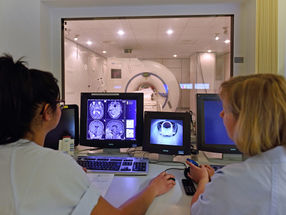Resistance to antibiotics requires commitment from world governments
Advertisement
Half a year ago a first common step was taken toward global concerted action to combat resistance to antibiotics in bacteria. Ahead of World Health Day on April 7, the network ReAct, which is led from Uppsala University, Sweden, is urging the world to redouble its efforts. For the first time in many years, there are initiatives to start developing new drugs that have to be available when the old ones have completely stopped working.
The revolution that antibiotics entailed in medical treatment of common and uncommon infectious diseases is threatened by the fact that all over the world bacteria are rapidly developing resistance to these drugs. Such a scenario would return health care to an age when a pneumonia diagnosis was usually tantamount to a death sentence.
At a historic three-day meeting at Uppsala University in September last year, 190 delegates from 45 countries—representatives of volunteer organizations, academia, the drug industry, governments, authorities, and transnational organizations—agreed on a joint stance in the matter of resistance to antibiotics. In brief, the agreement entails that the world community for the first time declared antibiotics resistance a global problem, stating that new business models are needed to disconnect the development of drugs and diagnostics from their sale, that all unnecessary use must be curtailed, and that monitoring of the spread of resistance to antibiotics needs to improve.
Among the results of the conference, a national work group on antibiotic resistance has been formed in Ghana, and later this autumn a global forum on infectious diseases will be arranged for the first time in India. The issue of antibiotic resistance, focusing on creating new antibiotics, is being taken up at the EU level; ReAct is coordinating two seminars in Brussels with representatives of various players. A first seminar was given on March 29, with some 35 participants, and a full-day meeting is planned for May 23.
Most read news
Other news from the department science

Get the life science industry in your inbox
By submitting this form you agree that LUMITOS AG will send you the newsletter(s) selected above by email. Your data will not be passed on to third parties. Your data will be stored and processed in accordance with our data protection regulations. LUMITOS may contact you by email for the purpose of advertising or market and opinion surveys. You can revoke your consent at any time without giving reasons to LUMITOS AG, Ernst-Augustin-Str. 2, 12489 Berlin, Germany or by e-mail at revoke@lumitos.com with effect for the future. In addition, each email contains a link to unsubscribe from the corresponding newsletter.

























































